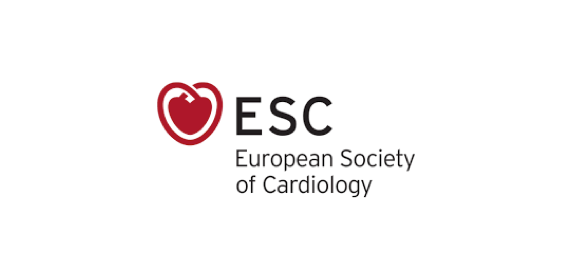European Society of Cardiology / European Heart Rhythm Association
Leader of Work Package 7 on Communications and Dissemination

The European Association of Cardiology (ESC) is an independent, non-profit organisation and represents more than 95,000 decision-makers and healthcare professionals in the field of cardiology. The ESC acts in the interest of patients by providing cardiologists with the support and tools they need to deliver the best possible care. The European Heart Rhythm Association (EHRA) is a branch of the ESC, the primary network of European Cardiac Rhythm Management, with about 3,500 members worldwide. Its mission is to improve the quality of life and reduce sudden cardiac death (SCD) by limiting the impact of heart rhythm disturbances.
Disseminating PROFID project outcomes
Within the PROFID project, ESC is responsible of Work Package 7, which is primarily focused on communication and dissemination. PROFID is designed to encourage changes in the prevention of sudden cardiac death in those patients who have had a myocardial infarction before. The ESC and EHRA are firm supporters of innovation in order to improve clinical outcomes of all patients exposed to cardiovascular risks. The PROFID approach applies a novel personalized medicine strategy for the first time, which the ESC and EHRA are proud to be associated with. As work package leader for dissemination it’s the ESC’s key goal to leverage and promote worldwide the PROFID project results in order to support the implementation of a personalized prediction of risk for sudden cardiac death after myocardial infarction by targeted implantation of an implantable cardioverter-defibrillator and therefore improve clinical outcomes.
The project outcomes will help inform relevant clinical guidelines. The most important of these are the ESC guidelines for prevention of SCD. The ESC clinical guidelines are the main documents providing international guidance for clinical practice in cardiovascular medicine to health care professionals in Europe and beyond. Furthermore, the European Heart Rhythm Association, the ESC branch that focuses on cardiac arrhythmias and that has as mission the reduction of SCD, will incorporate the project and the results in position documents and expert consensus statements.
Worldwide communication through the educational portfolio of the ESC and EHRA
The PROFID project is integrated into the educational portfolio of the ESC and EHRA. The whole variety of the educational tools are available to support PROFID, such as the ESC e-learning platform with organization of webinars dedicated to primary prevention of sudden cardiac death, online presentation of clinical cases pertinent to the subject, online hosting of interviews of experts promoting the results of the project, and incorporation of educational sessions in the ESC and EHRA congresses. To achieve the expected impacts for the PROFID project, the optimal promotion of the project objectives, strategy, and the impact of its findings are key for the ESC. To achieve this, a communication plan including a series of activities specifically aimed at targeted audiences was developed to be performed and updated throughout the duration of the project. A wide range of communication activities are monitored and coordinated by the ESC, such as press releases, events, the PROFID website, the PROFID newsletter or the PROFID social media channels.
One of the latest involvements was the support during EHRA 2022 congress in Copenhagen (3 April – 5 April 2022). PROFID was featured prominently in two separate sessions at the EHRA congress, where the latest results of the PROFID analysis were presented to leading scientists and key opinion leaders in cardiology from all over the world.
More about ESC
The European Association of Cardiology (ESC) is a non-profit, volunteer-led medical society whose members and decision-makers are scientists, physicians, nurses, and other allied health professionals working in all aspects of cardiology. This one-of-a-kind network helps researchers to better understand the impact of cardiovascular disease and contribute to the objective of lowering the illness’s burden.
The ESC makes use of unbiased, real-life data to show what is going on in cardiology today. It aids in the development, innovation, and administration of world-class cardiovascular-related research programs. It carries out research with the help of ESC institutional members and international networks, including 21 Registries with 150,000 patients from 89 countries.
The ESC projects team is specialized in the implementation of Horizon 2020 projects and currently involved in 14 EU funded initiatives; and has a strong expertise in leading tasks, work packages and project coordination. In addition, each year, the ESC hosts several cardiology conferences, including the world’s biggest cardiology conference, the ESC Congress.
